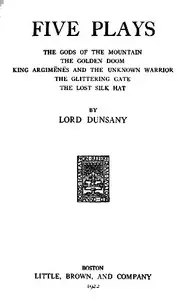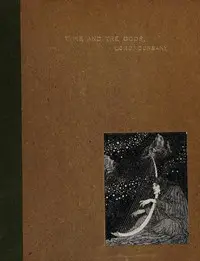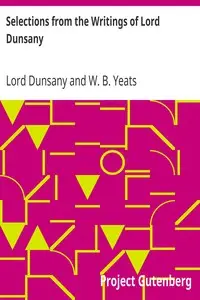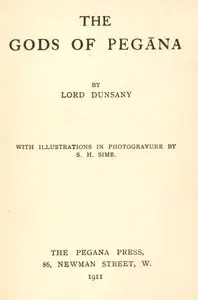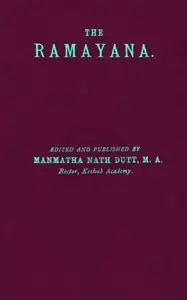"Plays of Gods and Men" by Lord Dunsany is a compilation of plays crafted in the early 1900s, weaving together fantasy and philosophical musings as it examines divinity, the natural world, and what it means to be human. The stories depict kings, queens, and everyday people wrestling with their destinies under the gaze of unpredictable gods. The first play, "The Laughter of the Gods," unfolds in the lively yet fragile jungle city of Thek, where King Karnos and his court are uneasy due to grim predictions from a strange prophet and troubling signs around the city. The characters navigate their ambitions and fears, their conversations revealing a deep uncertainty about fate, choice, and the ironies of existence, all set against a backdrop of divine anger and human foolishness.

Plays of Gods and Men
By Lord Dunsany
In a world where gods toy with mortals, a king and his people must confront ominous prophecies and their own desires, testing the limits of free will against a canvas of divine whimsy.
Summary
About the AuthorEdward John Moreton Drax Plunkett, 18th Baron Dunsany, commonly known as Lord Dunsany, was an Anglo-Irish writer and dramatist. He published more than 90 books during his lifetime, and his output consisted of hundreds of short stories, plays, novels, and essays; further works were published posthumously. Having gained a name in the 1910s as a great writer in the English-speaking world, he is best known today for the 1924 fantasy novel The King of Elfland's Daughter, and his first book, The Gods of Pegāna, which depicts a fictional pantheon. Many critics feel his early work laid grounds for the fantasy genre.
Edward John Moreton Drax Plunkett, 18th Baron Dunsany, commonly known as Lord Dunsany, was an Anglo-Irish writer and dramatist. He published more than 90 books during his lifetime, and his output consisted of hundreds of short stories, plays, novels, and essays; further works were published posthumously. Having gained a name in the 1910s as a great writer in the English-speaking world, he is best known today for the 1924 fantasy novel The King of Elfland's Daughter, and his first book, The Gods of Pegāna, which depicts a fictional pantheon. Many critics feel his early work laid grounds for the fantasy genre.



